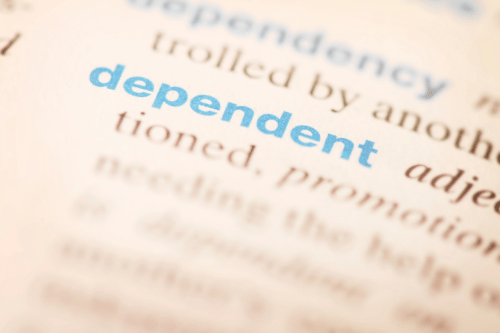
Is Zoloft Addictive? Understanding the Risks of Dependence and Withdrawal
Zoloft (sertraline) is one of the most widely prescribed antidepressant medications, used to treat a range of mental health conditions such as depression, anxiety, panic disorder, obsessive-compulsive disorder (OCD), and more. As part of the selective serotonin reuptake inhibitor (SSRI) class of drugs, Zoloft helps regulate serotonin levels in the brain, improving mood and alleviating symptoms of mental health disorders.
But while Zoloft is generally considered safe and effective when used as a prescription drug, questions often arise about the potential for addiction. Is Zoloft addictive, or can long-term use lead to dependence? In this comprehensive guide, we’ll explore the nature of Zoloft addiction, its withdrawal symptoms, and the potential risks associated with stopping the medication abruptly.
What Is Zoloft Used For?
Zoloft is prescribed to treat various mental health conditions that affect mood, behavior, and overall mental well-being. Some of the most common uses for Zoloft include:
- Depression: Zoloft is often prescribed to treat major depressive disorder (MDD), helping to improve mood, increase energy levels, and restore interest in daily activities.
- Anxiety Disorders: Zoloft is commonly prescribed for generalized anxiety disorder (GAD) and social anxiety disorder, where it helps reduce symptoms such as excessive worry, nervousness, and fear.
- Panic Disorder: For individuals suffering from frequent panic attacks, Zoloft can help decrease the frequency and severity of these attacks.
- Obsessive-Compulsive Disorder (OCD): Zoloft is used to help reduce the compulsive behaviors and obsessive thoughts associated with OCD.
- Premenstrual Dysphoric Disorder (PMDD): Women experiencing severe mood swings, irritability, and depression before their menstrual period may find relief with Zoloft.
- Post-Traumatic Stress Disorder (PTSD): Zoloft is sometimes used to manage the symptoms of PTSD, including anxiety, flashbacks, and depression.
While Zoloft is effective for many individuals to treat depression, concerns about dependence and the potential for addiction have become more prominent as its use has increased.

Is Zoloft Addictive?
One of the most common questions about Zoloft is whether it is addictive. Unlike drugs that have a high potential for abuse, such as opioids or benzodiazepines, Zoloft is not considered addictive in the traditional sense. It does not produce a “high” or the euphoria that typically leads to substance abuse. However, this does not mean that Zoloft cannot lead to dependence.
Zoloft Dependence: Physical vs. Psychological
While Zoloft is not classified as an addictive substance, long-term use can lead to two types of dependence: physical and psychological.
1. Physical Dependence
When a person takes Zoloft for an extended period, their body may become used to the presence of the drug. Over time, this can result in physical dependence, meaning that the body begins to rely on Zoloft to regulate serotonin levels and maintain emotional balance. Abruptly stopping Zoloft after long-term use can lead to withdrawal symptoms, which we’ll discuss in more detail later.
2. Psychological Dependence
Psychological dependence occurs when a person feels they cannot function without taking Zoloft, even when their mental health has improved. This type of dependence is more about the perceived need for the medication rather than a physical reliance. Individuals may feel anxious or uneasy about stopping Zoloft, fearing a relapse into depression or anxiety without the drug’s support.

Zoloft Withdrawal Symptoms: What to Expect
One of the significant concerns with Zoloft is the potential for withdrawal symptoms if the medication is stopped abruptly. This condition, known as antidepressant discontinuation syndrome, can occur in people who have been taking Zoloft for an extended period, especially if they suddenly stop without tapering off under the supervision of a healthcare provider.
Common Zoloft withdrawal symptoms include:
-
Dizziness or lightheadedness
-
Nausea and vomiting
-
Headaches
-
Irritability or mood swings
-
Insomnia or trouble sleeping
-
Fatigue or lack of energy
-
Flu-like symptoms
-
Brain zaps (a sensation of electric shock in the brain)
-
Increased anxiety or panic attacks
-
Difficulty concentrating
These symptoms can vary in intensity depending on how long the individual has been taking Zoloft and the dosage they were on before stopping. The symptoms may start within a few days of discontinuing Zoloft and can last for several weeks. To avoid Zoloft withdrawal, it is essential to work with a healthcare provider to gradually reduce the dosage over time.
Can Zoloft Be Abused?
Although Zoloft does not have the same abuse potential as drugs like opioids or stimulants, some individuals may misuse the medication, especially if they take higher doses than prescribed or use it alongside other substances. Misusing Zoloft in this way can lead to serious side effects, including serotonin syndrome, which occurs when there is an excessive amount of serotonin in the brain.
Serotonin syndrome can be a life-threatening condition, and symptoms include confusion, rapid heart rate, high blood pressure, muscle rigidity, and in severe cases, seizures or coma. This underscores the importance of taking Zoloft exactly as prescribed by a medical professional and not increasing the dosage without guidance.
Zoloft Addiction: Myth or Reality?
While Zoloft is not commonly associated with addiction in the way other prescription drugs are, some individuals may develop behaviors that resemble addiction. For instance, a person who has developed psychological dependence on Zoloft may feel an overwhelming need to continue taking the medication despite experiencing negative side effects or emotional difficulties.
This can be particularly true for individuals who struggle with mental health conditions such as depression, anxiety disorders, or mood disorders, where Zoloft has helped stabilize their symptoms over time.
In rare cases, Zoloft addiction can occur, particularly if someone abuses the medication in combination with other substances. Signs of Zoloft addiction may include taking more of the drug than prescribed, using Zoloft to manage stress or other emotional issues not related to its intended use, and continuing to use Zoloft despite experiencing negative consequences such as worsened mental health or relationship issues.

Managing Zoloft Withdrawal and Dependence
If you or a loved one has been taking Zoloft for an extended period and are concerned about dependence or withdrawal symptoms, it’s important to seek medical advice before stopping the medication. A healthcare provider can help create a tapering schedule that allows you to gradually reduce your dose over time, minimizing the risk of withdrawal symptoms.
In some cases, individuals who have developed a psychological dependence on Zoloft may benefit from addiction treatment programs. These programs provide support for managing the mental and emotional aspects of dependence, helping individuals regain control of their mental health without relying on medication.
Antidepressant Discontinuation Syndrome: What You Should Know
Antidepressant discontinuation syndrome is a condition that can occur when someone suddenly stops taking an antidepressant medication like Zoloft after long-term use. The syndrome is characterized by the onset of withdrawal symptoms, which can be both physically and emotionally distressing. It is estimated that around 20% of individuals who stop taking Zoloft experience antidepressant discontinuation syndrome.
To avoid this, medical professionals recommend tapering off Zoloft gradually. Tapering involves reducing the dose of the medication slowly over a period of weeks or even months, depending on how long the person has been taking it and at what dosage.
The Role of Serotonin in Zoloft Dependence
Zoloft works by blocking the reabsorption of serotonin in the brain, a process that helps to regulate mood and alleviate symptoms of depression and anxiety. This increase in serotonin levels can have a significant impact on a person’s mental health, helping to improve their overall sense of well-being.
However, when Zoloft is discontinued, the sudden drop in serotonin levels can lead to discontinuation symptoms, which are the hallmark of antidepressant withdrawal. These symptoms can be both physical and emotional, ranging from headaches and dizziness to increased anxiety and depression.
The Importance of Mental Health Treatment in Zoloft Dependence
For individuals who develop a dependence on Zoloft, it’s crucial to address not only the physical aspects of withdrawal but also the psychological components. Many people who rely on Zoloft to manage mental health conditions may benefit from addiction treatment programs that provide comprehensive support for both their mental and physical well-being.
These programs may include therapies such as cognitive-behavioral therapy (CBT), counseling, and other forms of psychological support designed to help individuals manage their symptoms without relying solely on medication. This holistic approach can be especially beneficial for those dealing with mental health disorders such as depression, anxiety, and panic disorders.
Conclusion
While Zoloft is not classified as an addictive substance, it can lead to both physical and psychological dependence, particularly when used long-term. Stopping Zoloft suddenly can result in withdrawal symptoms that range from mild to severe, making it essential to taper off the medication under the supervision of a healthcare provider.
If you or someone you know is concerned about Zoloft dependence or is experiencing difficulties with withdrawal, seeking professional help is crucial. Mental health professionals and addiction treatment programs can provide the necessary guidance and support to manage both the physical and emotional aspects of Zoloft dependence.
By understanding the potential risks associated with long-term Zoloft use, individuals can make informed decisions about their mental health treatment and avoid the complications of withdrawal and dependence.
Your Path to Freedom from Zoloft Addiction at Mountain Sky Recovery
If you’re struggling with Zoloft abuse, Mountain Sky Recovery is here to guide you on the path to recovery. Zoloft addiction, while not as widely recognized as other forms of substance abuse, can deeply affect individuals who develop a psychological or physical dependence on this prescription medication. Our comprehensive program is designed to address every aspect of Zoloft addiction, including managing the difficult withdrawal symptoms and addressing the emotional and psychological challenges that often accompany the discontinuation of Zoloft.
We offer personalized support for individuals seeking to detox from Zoloft and recover from long-term dependence. Our residential treatment program provides a peaceful and supportive environment, giving you the space to focus on your recovery and safely navigate the complexities of Zoloft withdrawal under the care of our experienced team.
Using evidence-based therapies and individualized treatment plans, our experts are committed to guiding you through the detox process, helping you regain control of your life, and supporting you in building a healthier, drug-free future. At Mountain Sky Recovery, we are dedicated to helping you overcome Zoloft addiction and embark on a new chapter in your life.
Seeking Treatment? We Can Help!
We work with PPO Out of Network Health Insurance Policies
If you or a loved one are struggling with mental health challenges or substance abuse, reach out to Mountain Sky Recovery today. Our team of compassionate professionals is here to support your journey towards lasting well-being. Give us a call at 951-877-5868.
FAQs For Is Zoloft Addictive?
1. Is Zoloft addictive?
Zoloft is not considered addictive in the same way substances like opioids or alcohol are. However, some people can develop a psychological dependence, and physical dependence may lead to withdrawal symptoms if stopped abruptly.
2. What are the signs of Zoloft withdrawal?
When discontinuing Zoloft, you may experience symptoms such as dizziness, nausea, headaches, irritability, insomnia, flu-like symptoms, and increased anxiety. These are common when the medication is stopped suddenly.
3. How can I stop taking Zoloft safely?
4. What should I do if I suspect Zoloft addiction?
If you think you’ve developed a dependence or addiction to Zoloft, seek help from a healthcare professional or an addiction treatment center. They can offer medical advice, therapy, and support to safely address your dependency.




